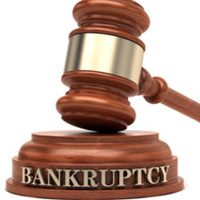What are the Most Common Reasons for Bankruptcies?

In simple terms, people file bankruptcy because they owe more than they can pay. Average credit card numbers are especially grim. The average household has over $7,000 in credit card debt. At an average interest rate of over 22 percent, it’s very difficult to pay off this debt simply by making double, or even triple, minimum monthly payments.
However, many families cannot afford these payments on an every month basis. Therefore, very difficult becomes almost impossible.
If you have more debt than you can pay, a partnership with a Chicago bankruptcy attorney is probably your best option. Chapter 7 quickly discharges credit card and other unsecured debt. Chapter 13 offers debtors an affordable payment plan that allows them to pay off debt. Taking advantage of this fresh start, and the other benefits of bankruptcy, is a much better financial strategy than waiting and hoping things improve.
Job Loss/Business Downturn
Creditors promote the myth that most people run up large credit card bills because they buy expensive luxuries they cannot afford. That’s certainly true in a few cases.
However, for the most part, families overuse credit cards because they have no other source of income. A brief slowdown at a family-owned business or a few months of unemployment cripple most families. Most Chicagoans have little or no savings. Therefore, when times get tough, they must use their cards until their situations improve.
This approach is usually sustainable for a few weeks. But since credit card interest rates are so high, as mentioned above, the unpaid principal balance quickly grows and becomes unmanageable.
Bankruptcy is a last resort for most people. So, by the time they reach out to a Chicago bankruptcy lawyer, the job loss or business downturn emergency has passed. Therefore, they’re well-positioned to take advantage of bankruptcy’s fresh start.
Divorce/Separation
Separation and divorce is very hard on a family from an emotional perspective. These things are also difficult from a financial perspective.
One household is much less expensive to maintain than two households. Generally, instead of paying 50 percent of the monthly bills, divorced or separated spouses must suddenly pay 100 percent of the bills.
FSOs (family support obligations) make things easier, but they don’t help much. Very few spouses can live on child support and alimony alone.
Furthermore, spouses must pay unexpected divorce-related costs, such as rent deposits and attorneys’ fees. Once again, most families have little or no savings. Therefore, they typically use credit cards to pay these unexpected costs, giving them an unwanted place on the debt treadmill.
Medical Bills
We end this blog with the number one reason people file bankruptcy in Chicago. Most Americans have more medical bills than they can pay. These bills have emotional effects as well as financial effects. In fact, many of these debtors report PTSD-like symptoms, such as nightmares and depression.
Bankruptcy allows families to take control of their medical expenses. These unsecured debts are usually dischargeable, in both a Chapter 7 and a Chapter 13. If the family wants to keep the doctor-patient relationship in good standing, an attorney usually negotiates a favorable reaffirmation agreement, which may include a lower balance or interest rate.
All three of these causes have at least one thing in common. For the most part, they’re completely beyond the debtor’s control. These situations are tailor-made for the fresh start and asset protection that the Bankruptcy Code guarantees.
Reach Out to a Thorough Cook County Lawyer
No matter what kind of financial problem you are having, there’s usually a way out. For a free consultation with an experienced bankruptcy attorney in Chicago, contact the Bentz Holguin Law Firm, LLC. We routinely handle matters throughout the Prairie State.
Source:
lendingtree.com/credit-cards/credit-card-debt-statistics/


